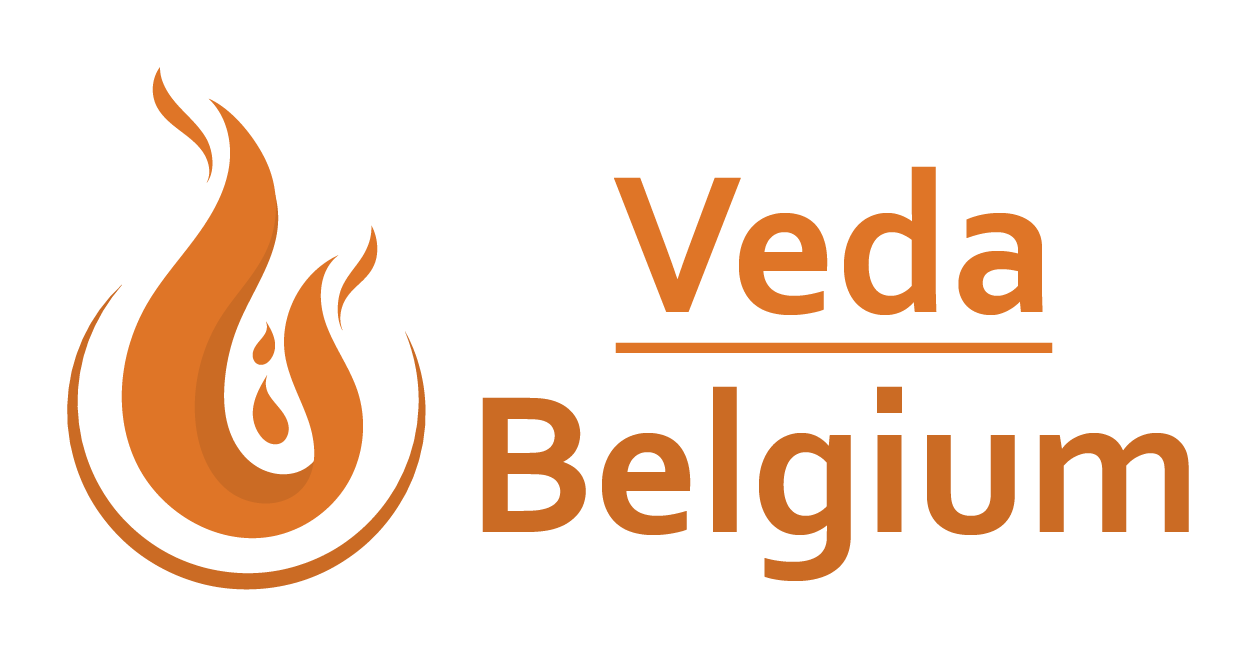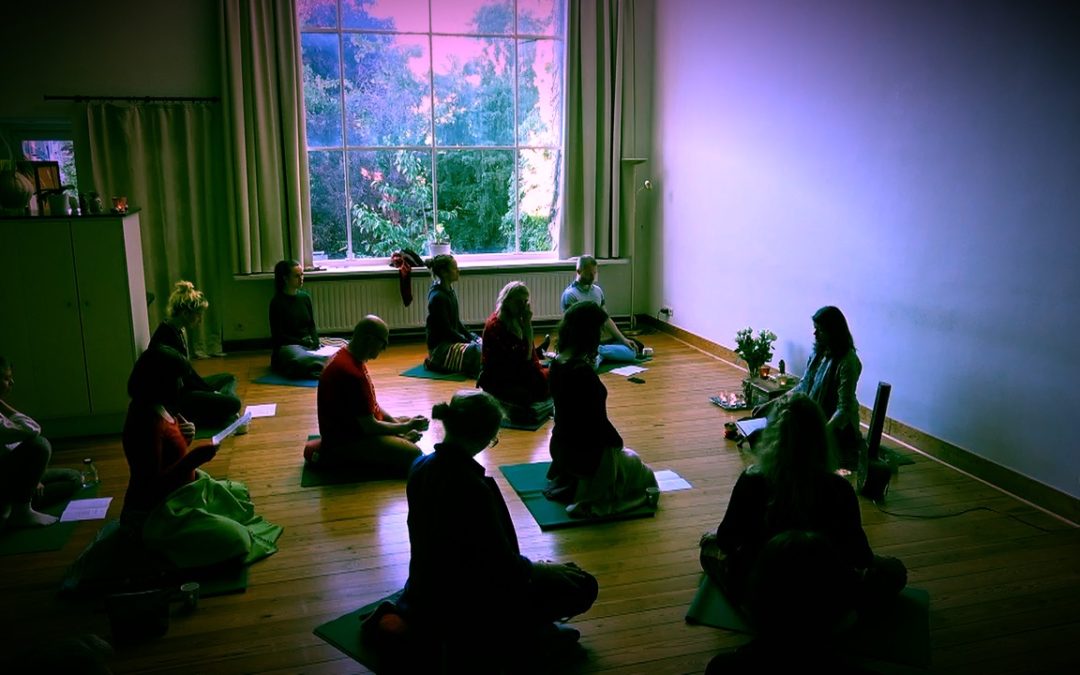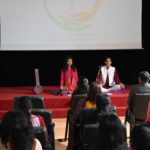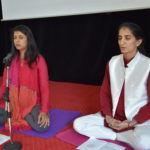Just a few months ago, at an event, The Ambassador of India to Belgium asked me a very pertinent question. She said, “Tell me, why would one want to take the time to learn, understand and practice Veda recitation. I know it is important, but I’d like to understand exactly why.”
Great question. Honestly, I never asked this question myself. It never occurred to me to question our śruti, the divine revelation of all knowledge to the Ṛṣi-s (seers/sages) of India. Why would I question such a great thing!! In any case, being a bullet-point writer and thinker, I answered, “there are numerous reasons to chant the Vedas, but here are the 3 most important ones:
- It is the easiest way to bring the mind to a calm space. There is immediate feedback from the experience of chanting the Vedas. You will feel calm. It isn’t easy for the average person to sit down for ‘silent’ meditation. The special sounds of Sanskrit give us something to focus on.
- Great way to improve your breathing. The process of chanting is a process of exhalation. Chanting will eventually extend the length of exhalation, improving your breath. There are numerous studies on the breath-mind-well-being connection!
- Self-development – consistent practice leads to development of clarity, will-power, self-reliance, confidence, attention, listening, concentration, cognition, memory. I just want to mention clarity again.”
And so, this little conversation we had, resulted in a lunch time Veda chanting event at the Indian Embassy for the entire staff.
- An introduction to Veda chanting
- With Sonu ji, Teacher of Indian Culture, Embassy of India
- Indian Embassy diplomats
But seriously, how will my ability to concentrate improve? My memory??
The process of learning Veda chanting is very humble. The teacher recites, the student repeats twice. Now, to repeat exactly, you will need to fill your mind entirely with the sound of the teacher reciting. Followed by a silence that you will come to love. A silence that will be experienced deeply as you progress. Just a moment of silence. But deep and beautiful. In Sanskrit, we call this adhyayanam, or the study of chanting.
To repeat exactly, your listening has to be perfected. You need to replicate this perfect listening each time you practice, eventually graduating to the point you can correct yourself.
Here’s a little excerpt of a one hour class learning a beautiful mantra for Peace with a group of mixed levels, including complete beginners (first timers!!).
and here’s the same group at the end of the class! What you don’t see is that the group, in the simple process of repeating after the teacher are learning the mantra along with all the rules of recitation, handed down through oral tradition over several millennia.
Katherine Le Mée* in her book Chant says “Listening to the sound of someone’s voice, like listening itself, is a subtle effort. It is not the actual listening that is difficult, since listening is basically a passive activity. It is rather the effort needed to focus our attention on the sound and not to be distracted by our own thoughts or things that are happening nearby.”
Listening is the crucial starting point.
When we start to explore the meaning of the mantras, our self-development accelerates! There are hymns dedicated to developing clarity (medha-sūktam), self-confidence (śraddha-sūktam), will power (ṛg veda mantras on agni/fire) and so on.
The Veda is said to embody the regulations, the laws of the universe as “seen” by the gifted poets, prophets, or seers, the rishis. Set by them in a special language to be joyfully proclaimed for future ages, it has come down to us through an elaborate oral tradition consciously designed to prevent any distortion. (Jean Le Mée, Hymns from the Rig Veda)
Especially for the aspiring yogī, these skills are priceless. They accompany us on a safe and consistent journey of Yoga, allowing us to first recognize and thus helping us navigate the obscure inner and outer obstacles on our spiritual path.
I find that chanting is a beautiful, meditative and intensely impactful way to begin the study of Vedas for beginners. Not as a scholarly text to be studied with a dictionary and commentary, but as an active practice of using our voice, breath and vital energy. Chanting touches the spirit in a special way and allows one to become familiar with the vocabulary and then with the right translation, commentary and teaching, a wonderfully meaningful daily practice emerges. Chanting brings the mind to a quiet place, a single point, an important consideration in our modern busy lives. This quietude can be a made a habit with regular practice. This quietude allows us the space for the meaning of these beautiful Veda mantras to reveal themselves to us.
* Katherine Le Mée is a wonderful friend and author of Chant – The Origins, Form, Practice, and Healing Power of Gregorian Chant





You can join me this Sunday for a beginner’s workshop!
https://vedabelgium.com/event/veda-chanting-initiation/
Will be available soon online as well 🙂
Incorporating just a small chanting practice tremendously helped me with clarity of thinking and built a hard to express in words sense of calm. This has also opened door to enquiry and seeking the knowledge behind the chants.
I am glad the beginner workshop will be online soon.
So glad it has been important for you Vasudha, thank you for sharing.
I really love what you say about the breathing, the short moment of silence after listening to the voice of the teacher (adhyayanam) and the natural deep peace that comes after the chanting.
And concerning the mantras I keep on reciting the Mahamrtyunjaya mantra every morning (I started 4 months ago when you sent me this mantra before the heart operation of my husband), it nourishes me so much and helps me starting my day peacefully.
I really love what you say about the breathing, the short moment of silence after listening to the voice of the teacher (adhyayanam) and the natural deep peace that comes after the chanting.
And concerning the mantras I keep on reciting the Mahamrtyunjaya mantra every morning (I started 4 months ago when you sent me this mantra before the heart operation of my husband), it nourishes me so much and helps me starting my day peacefully.
Thank you for sharing your thoughts dear Meera, and so generous of you to share with us this personal situation where chanting a Veda mantra has brought you and continues to bring you peace. Much love – Shantala